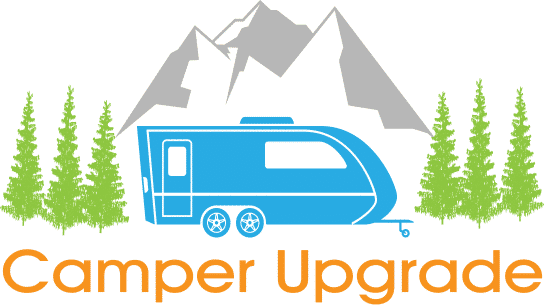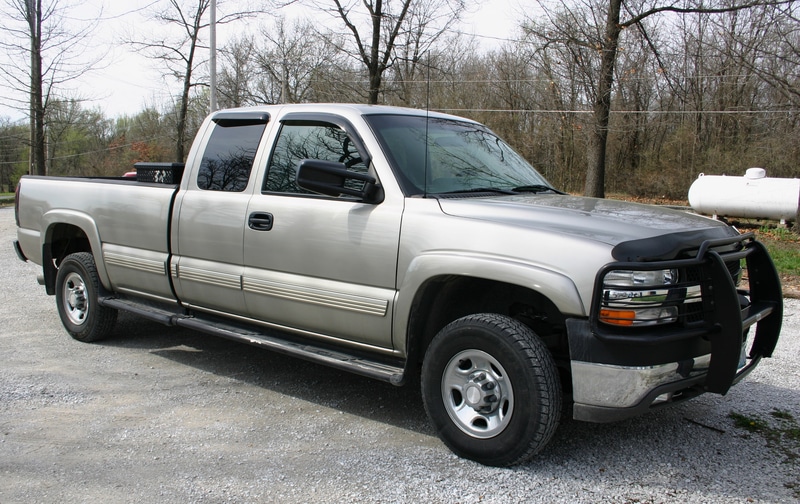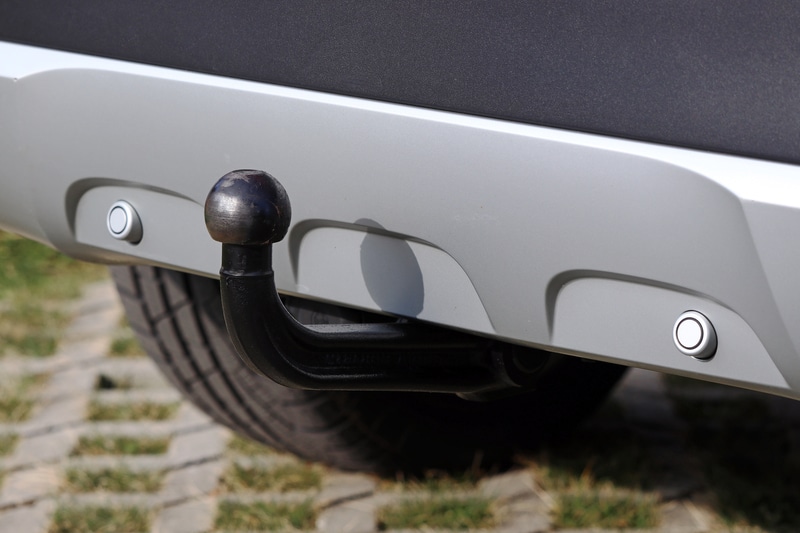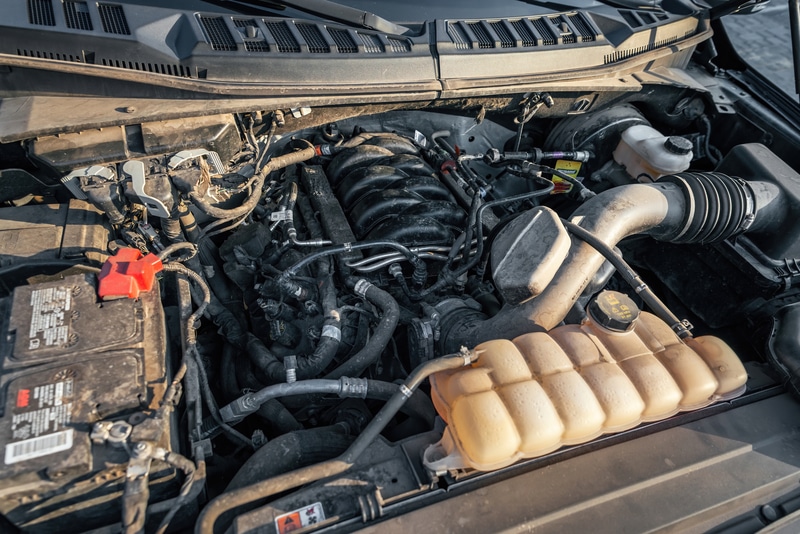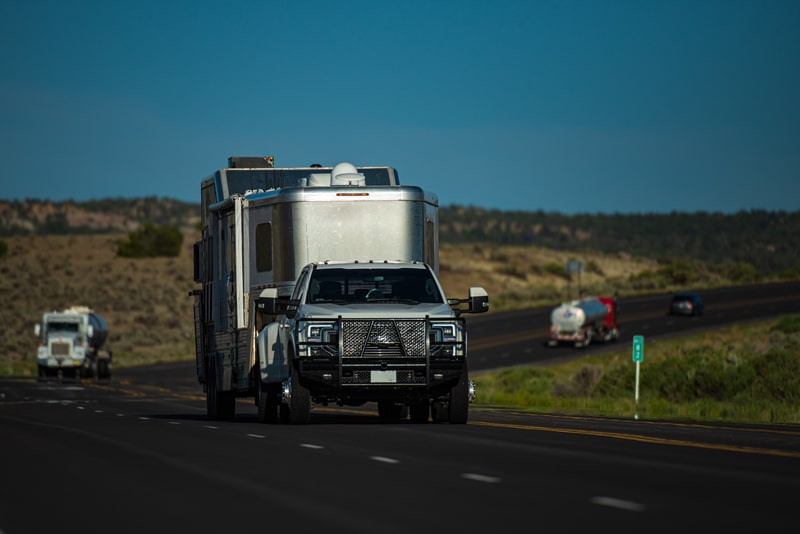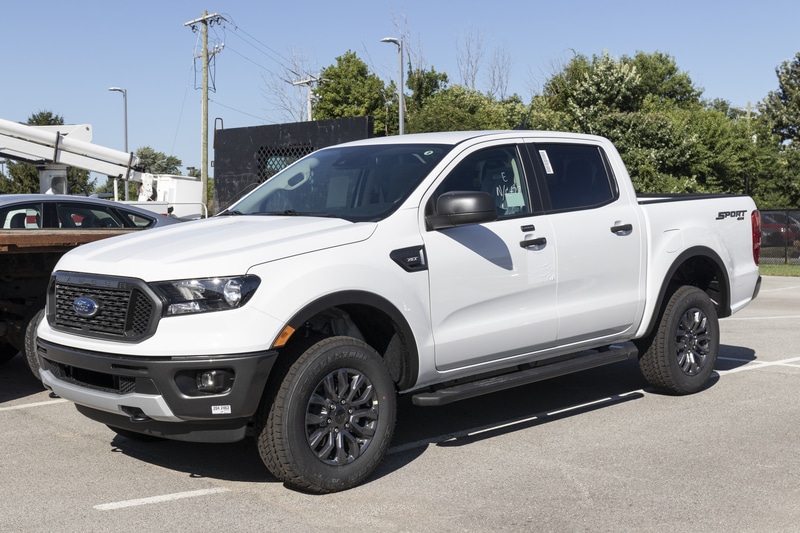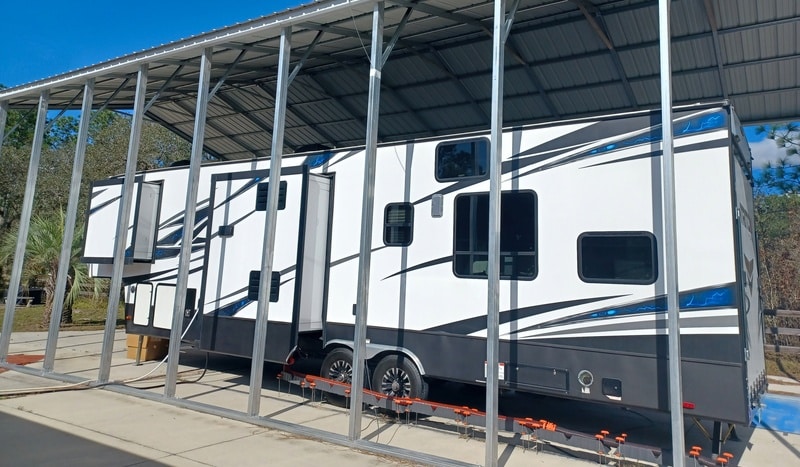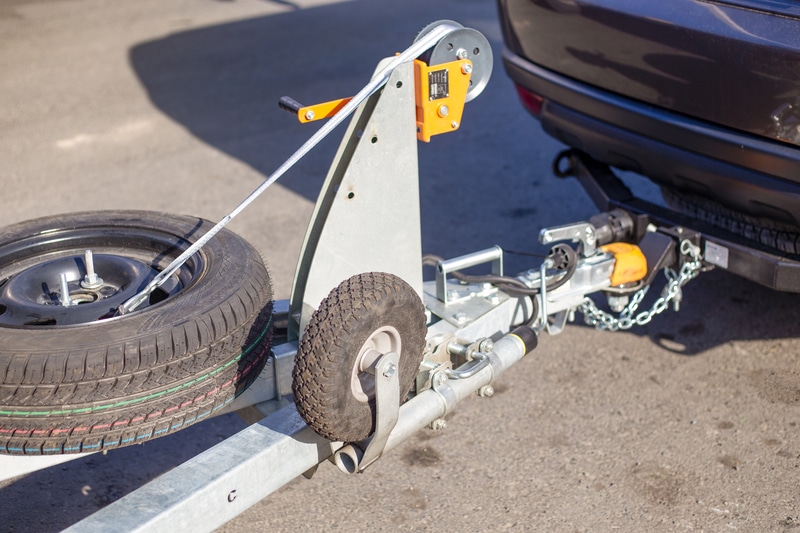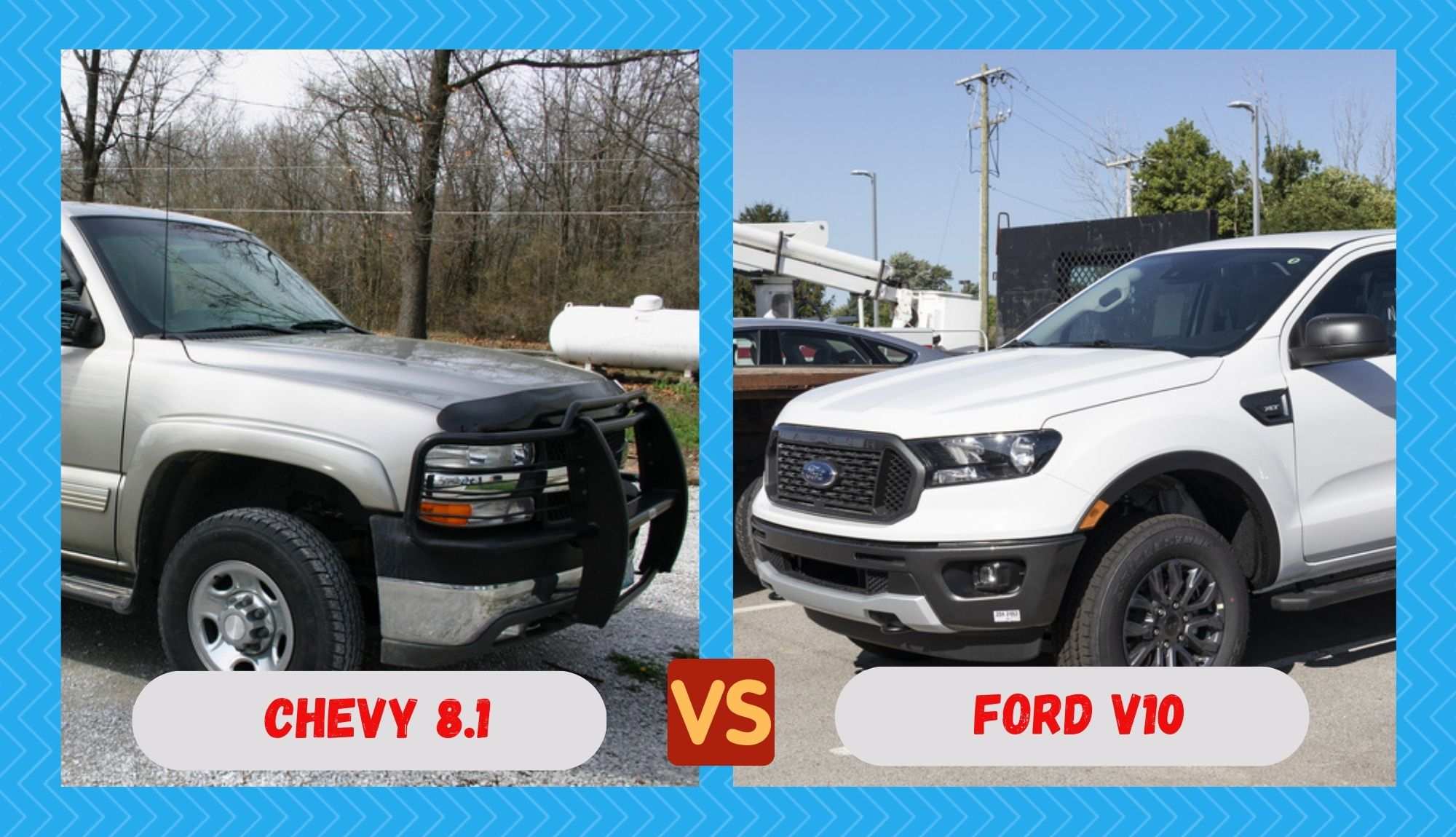
Suppose you’re looking for a reliable engine to power your motorhome. In that case, you should consider the Chevy 8.1 or Ford V10. These motors have extremely great hauling and towing capabilities so that you can safely get from one place to another.
However, you’ll need to check the specs on your motorhome to ensure that the motor fits properly where it’s supposed to. Otherwise, you could purchase a motor that is unsuitable for your motorhome.
Please continue reading to learn the similarities and differences between the Chevy 8.1 and the Ford V10. We will discuss how these motors impact your motorhome and which will work best for your situation.
Similarities Between the Chevy 8.1 and Ford V10 For Motorhome
It’s hard to choose between these engines when supplying power to your motorhome because they’re extremely similar. Unfortunately, these are the most notable similarities you can detect when purchasing these engines.
- Similar horsepower: These high horsepower engines are fantastic for motor homes because you need plenty of horsepower to carry this weight. Motorhomes usually weigh around a few 1000 pounds, not including the items you have inside. Again, you need a motor that can accommodate this weight, and high horsepower is crucial.
- Reliable reputations: Another thing these engines have in common is that reliable brands produce them. Ford and Chevy are categorized the same way regarding vehicles, including motorhome engines. Choosing an engine from a reputable retailer is important, so you don’t get ripped off.
- Popular options for motorhome owners: Before choosing an engine, it’s important to look at the most popular options. Engines gain popularity because people have a successful time using them. Fortunately, the Chevy 8.1 and the Ford V10 are popular options for motorhome owners.
Your motorhome means more to you than most people that own an RV. When you have a motorhome, you spend a great deal of time in that home traveling the country.
Due to the amount of time you spend in your motorhome, it’s crucial that you pick an engine that’s reliable and efficient. Otherwise, you’ll get stuck in an unpleasant situation.
Differences Between the Chevy 8.1 vs Ford V10 For Motorhome
Now that you understand the similarities between these engines, it’s time to discuss the differences. Choosing the right engine for your motorhome it needs means you need to look at every aspect of these engines.
The table below displays the basic specs you can expect from the Chevy 8.1 and the Ford V10. Depending on your motorhome, you’ll prefer one engine over the other. Each engine has its merits that you should consider before purchasing.
| Chevy 8.1 | Ford V10 | |
| Towing Capacity | 10,500 lbs. | 7.400 lbs. |
| Popularity | Common | Common |
| Horsepower | 340 | 362 |
1. Towing Capacity
The Chevy 8.1 has a higher towing capacity than the Ford V10. Therefore, you could accommodate a few thousand extra pounds with the Chevy model, which can be beneficial when you own a motorhome. However, you need to consider the motorhome’s weight and the weight of appliances and objects you have inside.
Exceeding the towing capacity on your engine will cause all sorts of engine problems that Are expensive to resolve. If you’re dealing with a larger motorhome and many appliances, you’ll want to purchase the Chevy 8.1 engine to keep yourself safe.
You must check your motorhome’s user manual before purchasing an engine to ensure you get the right model. There is a slight size difference between these engines, so you must pick the right size to supply power to your RV.
2. Popularity
You might argue that the popularity of an engine shouldn’t matter because it’s not a popularity contest. Instead, you want the engine that works best for your motorhome and doesn’t necessarily care about which ones are more popular.
However, when an engine gains popularity in the motorhome community, it’s usually because it works well. Pay attention to the engines other people in your RV community choose for similar motorhome models.
Remember, you need to check the specs on your motorhome to ensure that the motor options you choose are appropriate. For example, some motor homes require smaller engines, while others require larger engines.
You can find plenty of online forums if you’re unsure whether an engine will work well in your RV. As long as you choose a motor with the correct specs, you shouldn’t have to worry about much else. Engines gain popularity due to their reliability and efficiency, and both engines are popular among motorhome owners.
3. Horsepower
The Ford V10 has a higher horsepower than the Chevy 8.1. However, this higher horsepower contributes more to speed and efficiency than how much weight the RV can accommodate. So if you’re looking for an engine that maintains a lower gas consumption, you would be better off getting the Ford V10.
Most people assume that a higher horsepower means you’ll be able to tow more weight. However, this is not the case in this scenario. Despite the higher horsepower, the Ford V10 cannot carry as much weight as the Chevy 8.1. Several factors contribute to how much weight you can accommodate in your motorhome.
What To Consider When Hauling Motorhome
Now that you understand the different specs between these engines and how they affect your motorhome, it’s time to discuss things you should consider before buying an engine. You must purchase the correct engine for your motorhome if you want to keep your vehicle safe while driving.
Purchasing the wrong engine can lead to lasting complications throughout your vehicle. Always check your user manual before purchasing an engine for your motorhome to ensure you’re getting the right option.
Unfortunately, not every engine works with every motorhome, so you must be cautious. For example, although the Chevy 8.1 and the Ford V10 are generally interchangeable, some motorhomes might not comply with one another.
1. Vehicle Size
Always consider the size of your motorhome before choosing an engine. For example, if you own a smaller motorhome, you would be fine getting the Ford V10 because it could accommodate the weight easily. However, if you own a larger motorhome, you need the Chevy 8.1 to tow your items and ensure vehicle safety.
You should consider vehicle size when you purchase an engine because it has the greatest impact on your engine’s longevity. If you purchase an engine for a small motorhome that’s too powerful, it can overwhelm your system.
On the other hand, purchasing an engine that doesn’t offer enough power output can also damage your motorhome.
Remember, when you have a larger vehicle size, you also carry more items inside that contribute to your weight.
Many people consider the vehicle’s weight without considering the items they have inside. Motorhomes usually have heavy appliances and other factors that can greatly affect the weight you drive around with.
2. Towing Capability
As we discussed earlier, you need to check the towing capability of your engine before purchasing the right option for your motorhome. Your motorhome user manual should specify the types of engines they’re compliant with and the most popular options for your vehicle.
If you struggle to find this information, contacting your motorhome manufacturer for assistance would be best. Contacting customer support is the easiest way to avoid purchasing the wrong engine for your motorhome and wrecking your vehicle.
They already know which engines comply with your RV, so you don’t have to overthink the process. They also know how much towing capacity you should expect with your vehicle that can help you choose the right engine.
Before making a purchase, you must consider whether or not you’re towing a daily driver behind your motorhome. If so, you need an engine that accommodates the weight of your motorhome, the items inside, and the weight of your regular vehicle. Towing a car or truck behind a motorhome is common in the RV community.
3. Prioritize Safety
It can be easy to dismiss engine basics when choosing the option you want for your motor home. However, choosing the wrong engine can cause all sorts of safety issues that lead you to get stranded on the side of the road.
Therefore, always prioritize your safety when operating a motor vehicle. Not only will you be preserving your safety by choosing the right motorhome engine, but you’ll also preserve the safety of other people who share the road.
If your engine blows out in the middle of your drive, it can cause a dangerous situation for everybody nearby. It’s especially dangerous because motorhomes are much larger than the average vehicle.
Final Thoughts
Finding a replacement engine for your motorhome can be a stressful experience because the average person doesn’t know what they’re looking for. Therefore, it would be best to consult your user manual before purchasing an engine.
Your user manual can help determine whether the Chevy 8.1 or Ford V10 is better for your situation. You should consider the weight of your vehicle, fuel efficiency, and road safety before purchasing one of these engines. The engine you choose depends on these factors.
